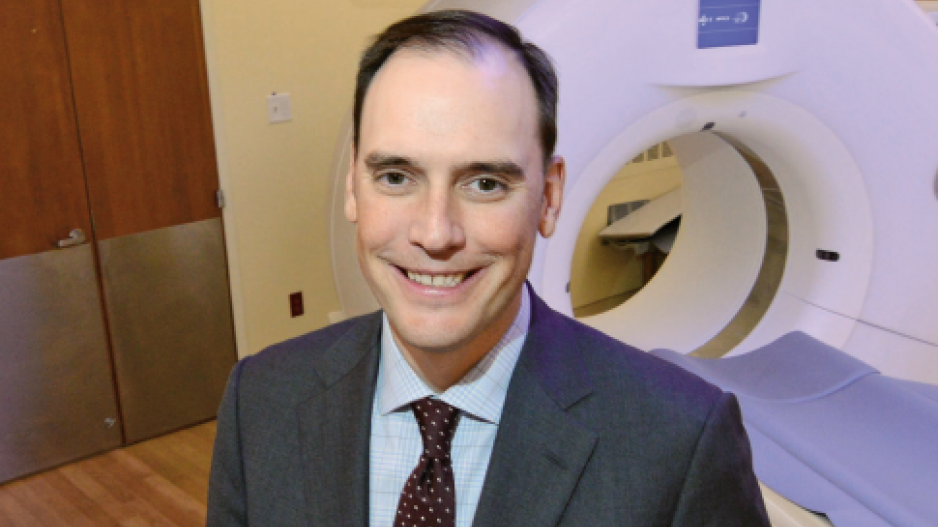Jeff Norris has worked for two hospital foundations and Kwantlen Polytechnic University over the course of his career. The professional fundraiser has always donated to his employers’ causes, but it took a very personal experience to make him step back and realize that it’s important to connect the outcome of a fundraising campaign with the very real difference it can make in people’s lives.
“I kind of forgot about why I gave,” Norris said.
While working at St. Paul’s Hospital Foundation, Norris was regularly involved in an annual charitable golf tournament. One year, part of the proceeds raised went to buy a special baby-monitoring machine for St. Paul’s maternity ward.
“Fast-forward a couple years later,” he said. “I’m having my first child in the hospital, and things kind of go from being a very regular, standard birth situation to being an absolute crazy emergency situation.”
Norris’ wife was rushed to an operating room where the baby was quickly delivered by caesarean section. Later Norris learned his baby’s umbilical cord had been crushed during the birth, depriving her of oxygen.
“The only reason they picked up on it was this monitor we had bought from the golf tournament years previous that wouldn’t have been in the hospital otherwise.”
For Norris, the incident was a reminder to seek out the stories of the people who have been affected by fundraising efforts. It also changed the way he approached his work.
“I spent a lot of time doing things and not thinking about the dramatic consequences of some of these small actions I was involved in,” he said, adding that the experience made him slow down and take a longer-term view of the projects he was working on.
Another example comes from Norris’ time at Kwantlen, when a student who was a single mother told him that receiving a scholarship had changed her mind about dropping out of school. It was important for her to tell her story to the donor, something he hadn’t considered.
“I was really thinking about it from connecting the student to the donor for the donor’s satisfaction, as opposed to connecting the donor to the student for the student’s satisfaction,” he said.
On thinking about the end result | “Instead of thinking, ‘Oh that’s great, we raised money for this machine, what are we going to do next?’ it’s thinking, … ‘Raising money for this machine could have this tremendous impact on all these people we’re never going to meet.’
Has a work or life challenge taught you a key career lesson? Contact Jen St. Denis at [email protected]




